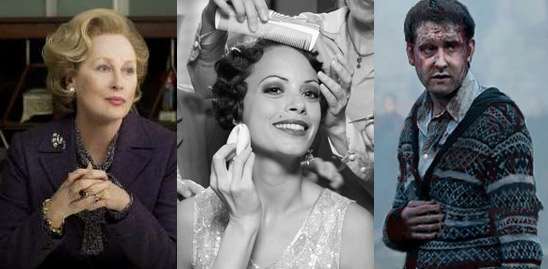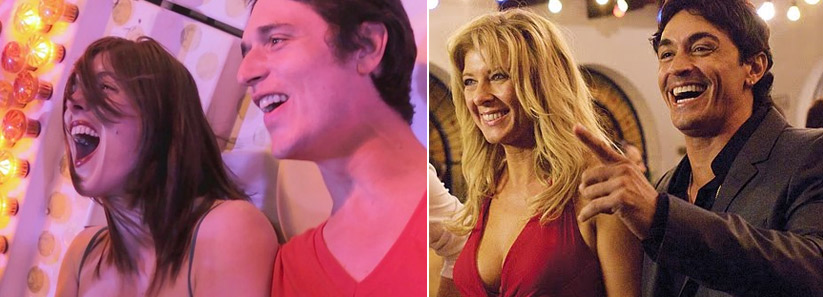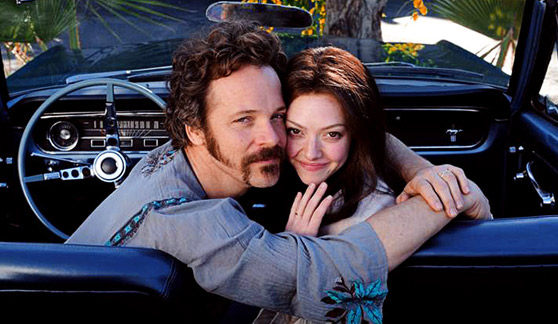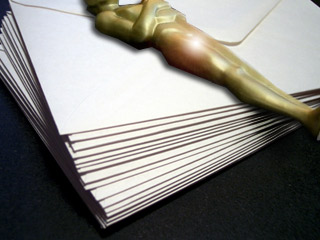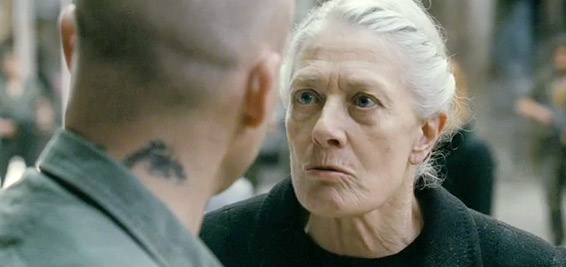British actress Olivia Colman speaks softly and with great modesty but perhaps that's wise. Her talent speaks loudly on its own behalf by way of ntroduction. Though British audiences have embraced her comic talent for years now, international audiences are just now getting to know her as a dramatic force. She's utterly devastating as a meek Christian shop owner in the violent drama Tyrannosaur. The film, directed by the actor Paddy Considine (In America), is gathering a small but very vocal fanbase who think Colman really ought to have a Best Actress nomination in her very near future. Later this month, she'll be onscreen again as Carol Thatcher daughter of The Iron Lady, but even if you exited the first movie only to immediately enter the latter, you'll scarcely recognize her from one film to the next.
We spoke briefly on the phone recently about her rising stardom, drama and comedy acting muscles, and having a living legend as a co-star.
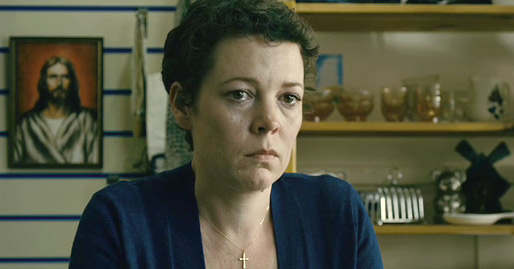 Olivia Colman is a true believer in "Tyrannosaur"
Olivia Colman is a true believer in "Tyrannosaur"
Nathaniel: Have you been able to soak in all of this attention from Tyrannosaur? Your name being on the awards radar here in the US and such?
OLIVIA COLMAN: Not really. it's quite surreal. Because it's not my first job. I'm 37 and i've been working for a long time. So... [long pause] This job means so much to me that I'm thrilled that people are liking it. That's the best thing about it, that other people are taking it to their hearts as much as we all did.
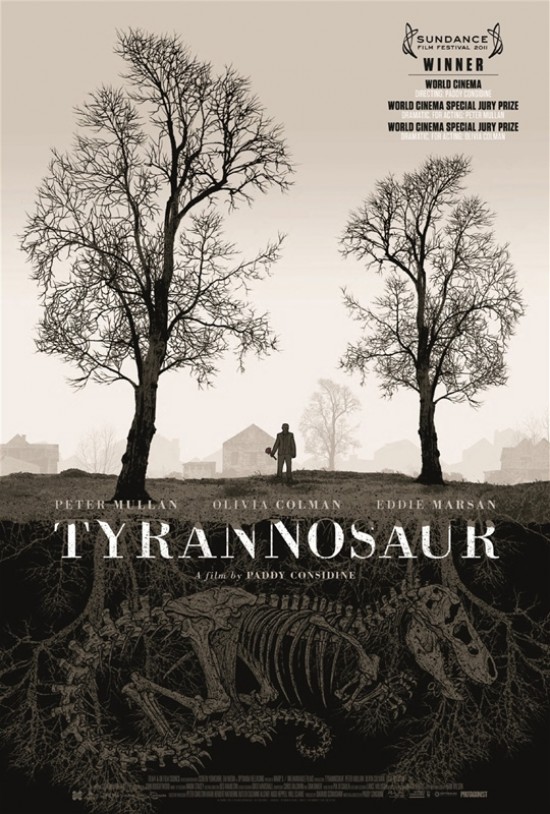 Nathaniel: Your involvement with Tyrannosaur goes way back. You were also in Paddy Considine's short film "Dog Altogether" about the same characters. Did this feel like a do-over? What was it like going back?
Nathaniel: Your involvement with Tyrannosaur goes way back. You were also in Paddy Considine's short film "Dog Altogether" about the same characters. Did this feel like a do-over? What was it like going back?
COLMAN: lt felt different. A lot of the scenes from the short were also in the feature and the reshooting of those scenes that we'd done years before were the hardest to film. It's weird because it's like an echo. You can hear yourself. You've already said it but years ago. It felt very different apart from that because we suddenly had a sense of a much longer journey. In the short I didn't know about Hannah's backstory at all.
Nathaniel: This gave you a chance to dig deeper then?
COLMAN: Yes. It's lovely to get your teeth into it.
Nathaniel: In terms of Hannah's religiosity and her generous nature. How did you approach constructing her? A lot of religious characters in cinema aren't, well, sympathetic like this.
COLMAN: It was so clear from the page. Paddy had written it so beautifully you just had to do what was written, really. I knew who she was straightaway. Even if she hadn't been a Christian of good faith, she would still have been a good person. Her faith is sort of her protection and her armor but even without it, I would have known who she was.
Nathaniel: Paddy is such a brilliant actor but he's not in front of the camera for this one. So what it was like being directed by a fellow thespian?
COLMAN: Amazing! It made such a difference. I don't imagine all actors can direct at all. I think probably a lot of them would be terrible but he was so comfortable on that side of the camera. He knew how difficult he found it in front of the camera and he made sure we never felt like that. We always felt safe. He's an extraordinary creature. He would say exactly the right thing to get you to the right place. I've said this before but I think he could get a performance out of a log. He's amazing, just taps in. Everybody wanted to make him proud. And he's a great leader of people. A little thumbs up at the right moment would made someone feel 10 feet tall.
For those of us who don't act, we always assume that sets of intense brutal dramas like this one must be sober or difficult to be on. But maybe it's not like that exactly.
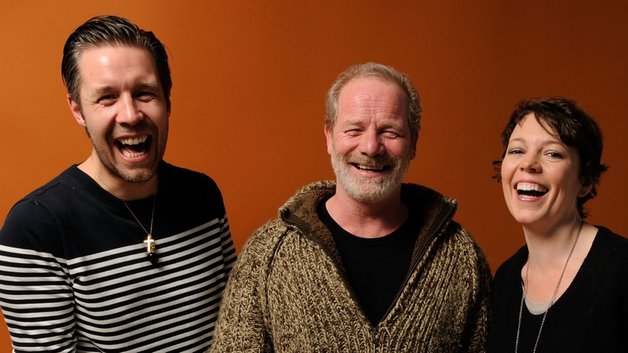 The "jolly" Tyrannosaur team
The "jolly" Tyrannosaur team
[Olivia on working with Meryl Streep and Michelle Pfeiffer... AFTER THE JUMP.]
Click to read more ...
 Monday, January 23, 2012 at 11:30AM
Monday, January 23, 2012 at 11:30AM 
 Burning Questions,
Burning Questions,  Oscars (11),
Oscars (11),  The Iron Lady,
The Iron Lady,  biopics,
biopics,  politics
politics 



